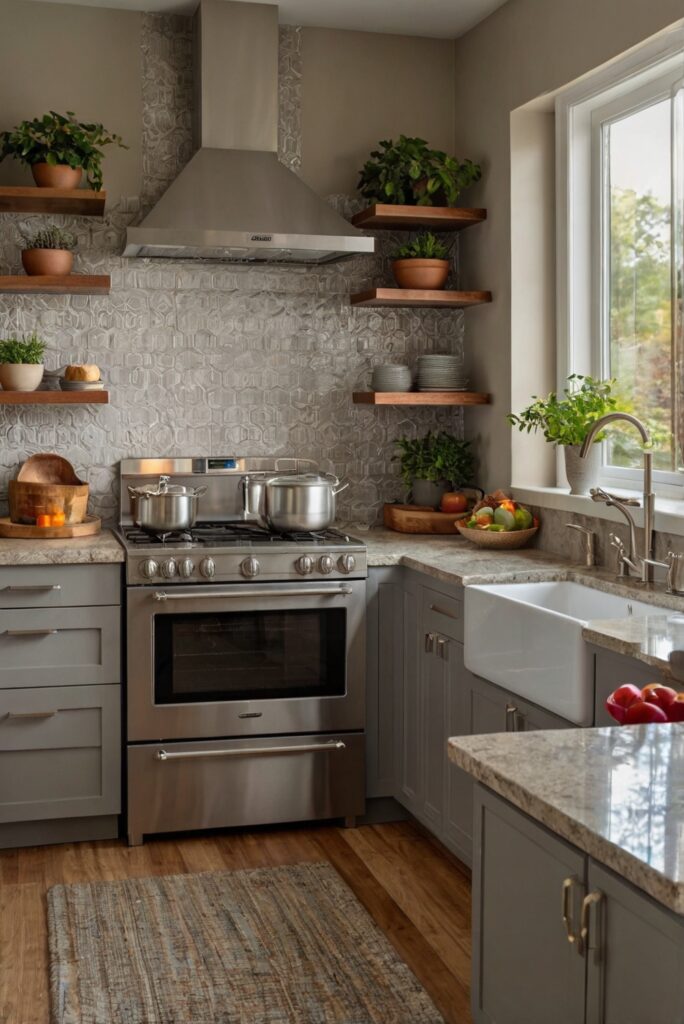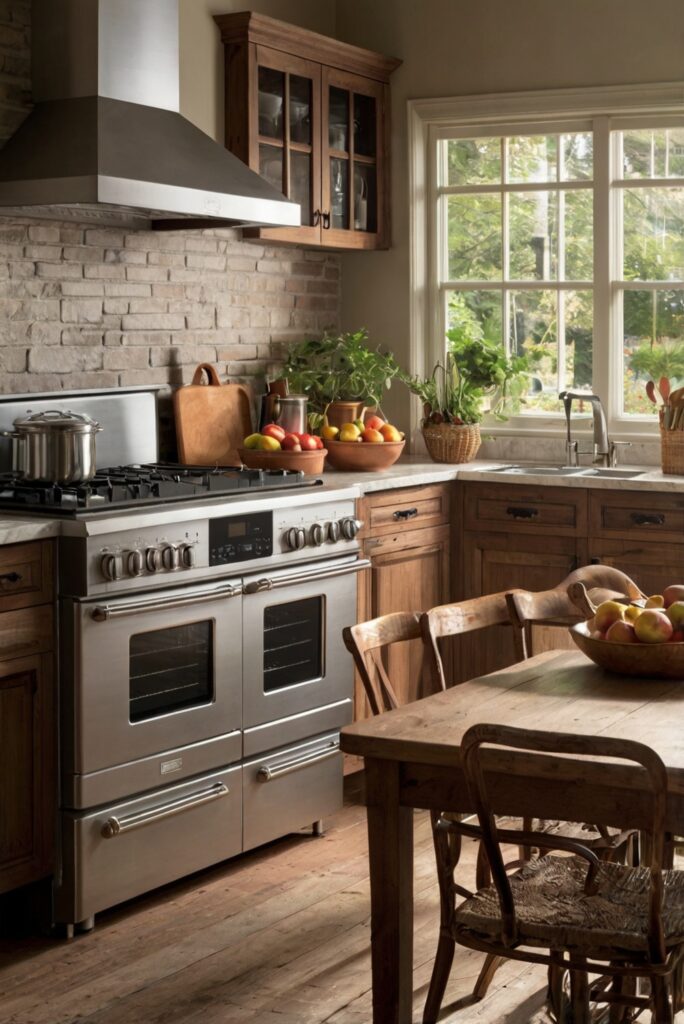Join us in exploring the key steps to selecting energy-efficient appliances for your kitchen. Let’s create a sustainable and stylish space together!
**How to Choose Energy-Efficient Appliances for Your Kitchen?**
Choosing energy-efficient appliances for your kitchen is essential for not only reducing your energy bills but also for the environment. Start by looking for appliances with an ENERGY STAR rating as they are certified to be more energy-efficient. Consider the size of the appliances to ensure they fit in your kitchen space properly. Look for appliances with features like energy-saving modes or programmable timers to further reduce energy consumption. Proper maintenance of your appliances also plays a crucial role in ensuring they remain energy-efficient. Additionally, investing in energy-efficient appliances can increase the value of your home. When selecting appliances, consider factors such as your cooking habits, the size of your family, and your budget. By taking these steps, you can make your kitchen more energy-efficient while also enhancing its overall aesthetic.
– **Benefits of Choosing Energy-Efficient Appliances:**
– Lower energy bills.
– Positive impact on the environment.
– Increased home value.
– Enhanced overall aesthetic of the kitchen.
Remember that energy-efficient appliances also contribute to a healthier living environment by reducing energy wastage and helping you save money in the long run.
Consider Your Needs and Usage:
When choosing energy-efficient appliances for your kitchen, it is crucial to consider your specific needs and usage patterns. Take into account the size of your household, your cooking habits, and the types of appliances you use most frequently. This will help you determine the appropriate size and capacity of the appliances you need, which can have a significant impact on energy efficiency.
Look for Energy Star Certified Appliances:
One of the most important factors to consider when choosing energy-efficient appliances is the Energy Star certification. Appliances with the Energy Star label meet strict energy efficiency guidelines set by the Environmental Protection Agency (EPA) and the Department of Energy. These appliances are designed to use less energy without sacrificing performance, saving you money on your energy bills in the long run.
Check the Energy Efficiency Rating:
Another key aspect to look for when selecting energy-efficient appliances is the Energy Efficiency Rating. This rating provides an indication of how energy-efficient an appliance is compared to similar models. The higher the rating, the more energy-efficient the appliance is, which can lead to significant cost savings over time. Be sure to compare the ratings of different models to choose the most energy-efficient option.
Consider the Life Cycle Costs:
When evaluating energy-efficient appliances, it is essential to consider the life cycle costs, not just the upfront price. While energy-efficient appliances may have a higher initial cost, they can save you money in the long run through reduced energy consumption. Calculate the total cost of ownership over the lifespan of the appliance, including energy costs, maintenance, and potential rebates or incentives.
Look for Energy-Saving Features:
In addition to the Energy Star certification and Energy Efficiency Rating, consider appliances with energy-saving features that can further reduce energy consumption. Look for features such as programmable settings, energy-saving modes, and smart technology that can help optimize energy usage based on your needs. These features can make a significant difference in the overall energy efficiency of your kitchen appliances.
In conclusion, choosing energy-efficient appliances for your kitchen is a smart investment that can save you money and reduce your environmental impact. By considering your needs and usage patterns, looking for Energy Star certified appliances, checking the Energy Efficiency Rating, considering the life cycle costs, and looking for energy-saving features, you can make informed decisions that benefit both your wallet and the planet. Make sure to research and compare different models to find the most energy-efficient options that meet your requirements.
1. What are the key factors to consider when choosing energy-efficient appliances for your kitchen?
When choosing energy-efficient appliances for your kitchen, there are several key factors to consider. Look for appliances with the ENERGY STAR label, as these are certified to be energy-efficient by the Environmental Protection Agency. Consider the size of the appliance and choose one that is appropriate for your needs to avoid wasting energy. Pay attention to the energy efficiency rating of the appliance, which can help you compare different models and choose the most energy-efficient option. Additionally, look for features like automatic shut-off or energy-saving modes to further reduce energy consumption.
2. How can you determine the energy efficiency of an appliance before making a purchase?
Before making a purchase, you can determine the energy efficiency of an appliance by looking at its EnergyGuide label. This label provides information on the estimated annual energy consumption and operating costs of the appliance, as well as a comparison to similar models. You can also check the energy efficiency rating of the appliance, which is typically displayed on the product packaging or in the product specifications. Another option is to research online or consult consumer reviews to see how well the appliance performs in terms of energy efficiency.
3. What are some tips for maximizing the energy efficiency of your kitchen appliances?
To maximize the energy efficiency of your kitchen appliances, there are several tips you can follow. Make sure to clean and maintain your appliances regularly, as dirt and dust can reduce their efficiency. Use appliances at the appropriate settings and avoid running them when not in use. Consider using a power strip to easily turn off multiple appliances at once. When cooking, use the appropriate size burner or pot to minimize energy waste. Finally, consider investing in smart appliances that allow you to monitor and control energy usage remotely.
4. Are there any government rebates or incentives available for purchasing energy-efficient appliances?
Yes, there are often government rebates or incentives available for purchasing energy-efficient appliances. Many states and utility companies offer rebates for upgrading to energy-efficient appliances, as well as tax credits for certain models. Additionally, some appliance manufacturers offer rebates or discounts for purchasing ENERGY STAR certified appliances. Check with your local utility company or visit the ENERGY STAR website to see if there are any incentives available in your area.
5. What are some popular energy-efficient kitchen appliances that are worth considering?
Some popular energy-efficient kitchen appliances worth considering include refrigerators with top-mounted freezers, which are more energy-efficient than side-by-side models. Induction cooktops are also a great option, as they heat up faster and waste less energy than traditional electric or gas stoves. Dishwashers with energy-saving modes and water-efficient features can also help reduce energy consumption. Finally, convection ovens are a popular choice for energy-efficient cooking, as they use fans to circulate hot air and cook food faster and more evenly.



